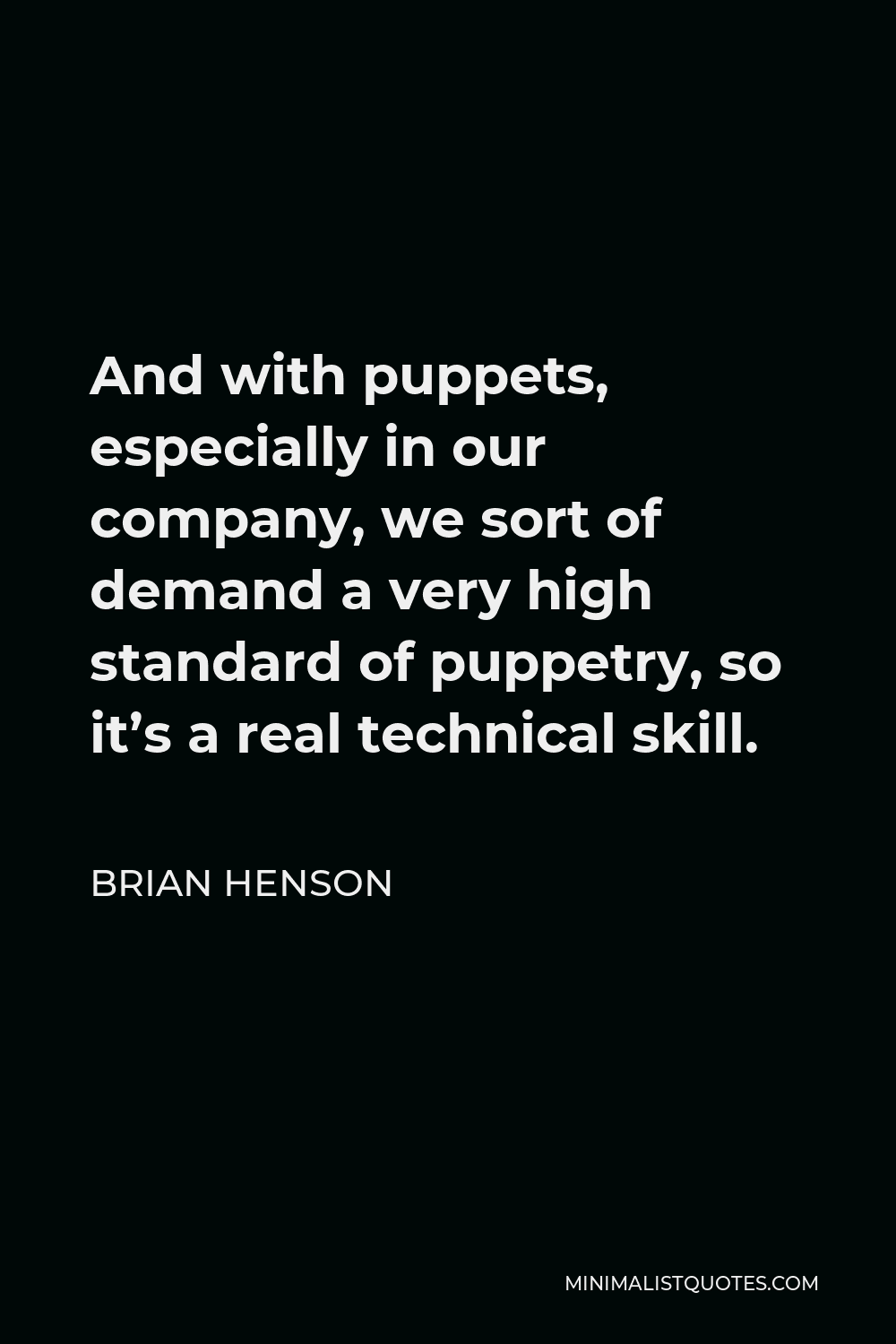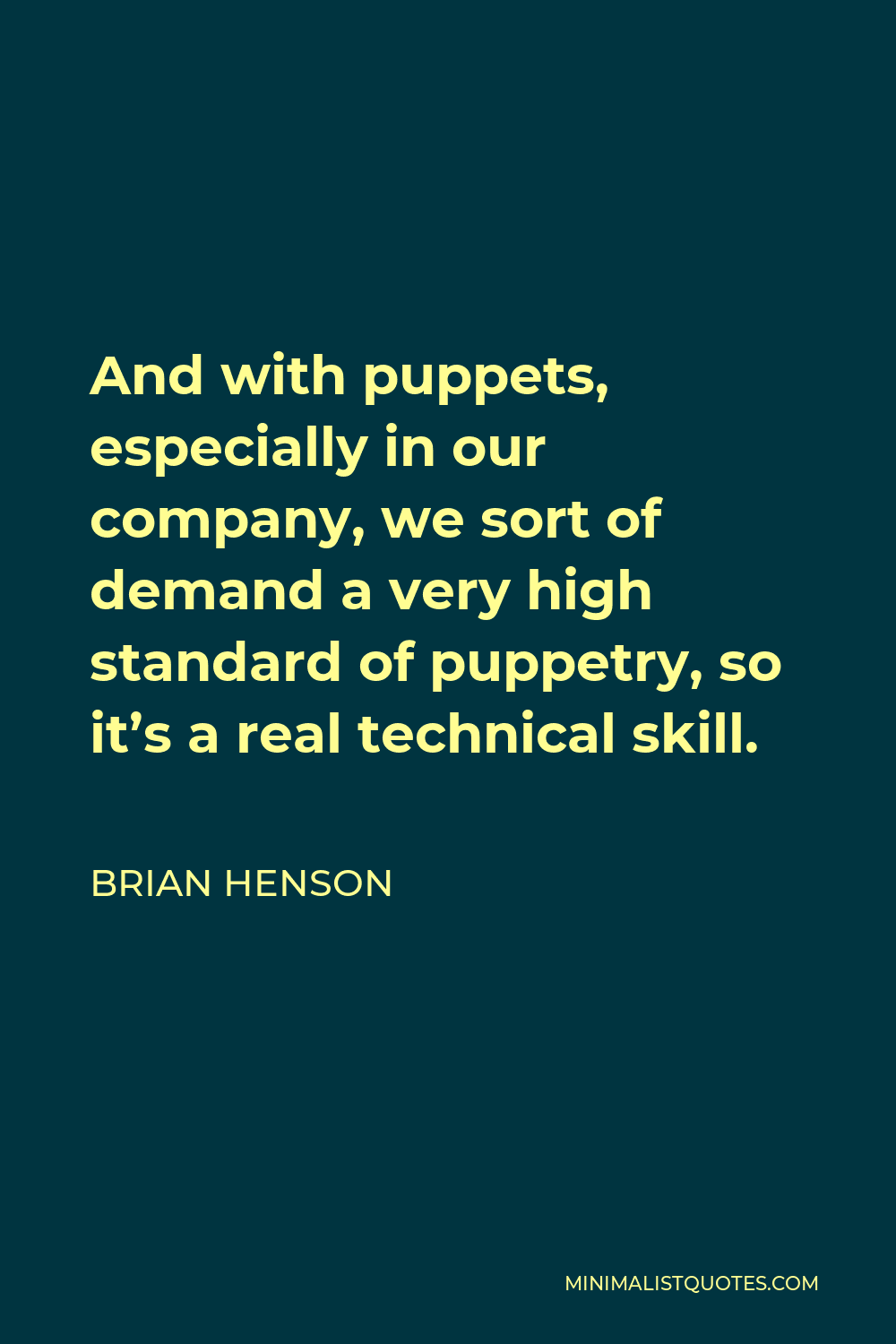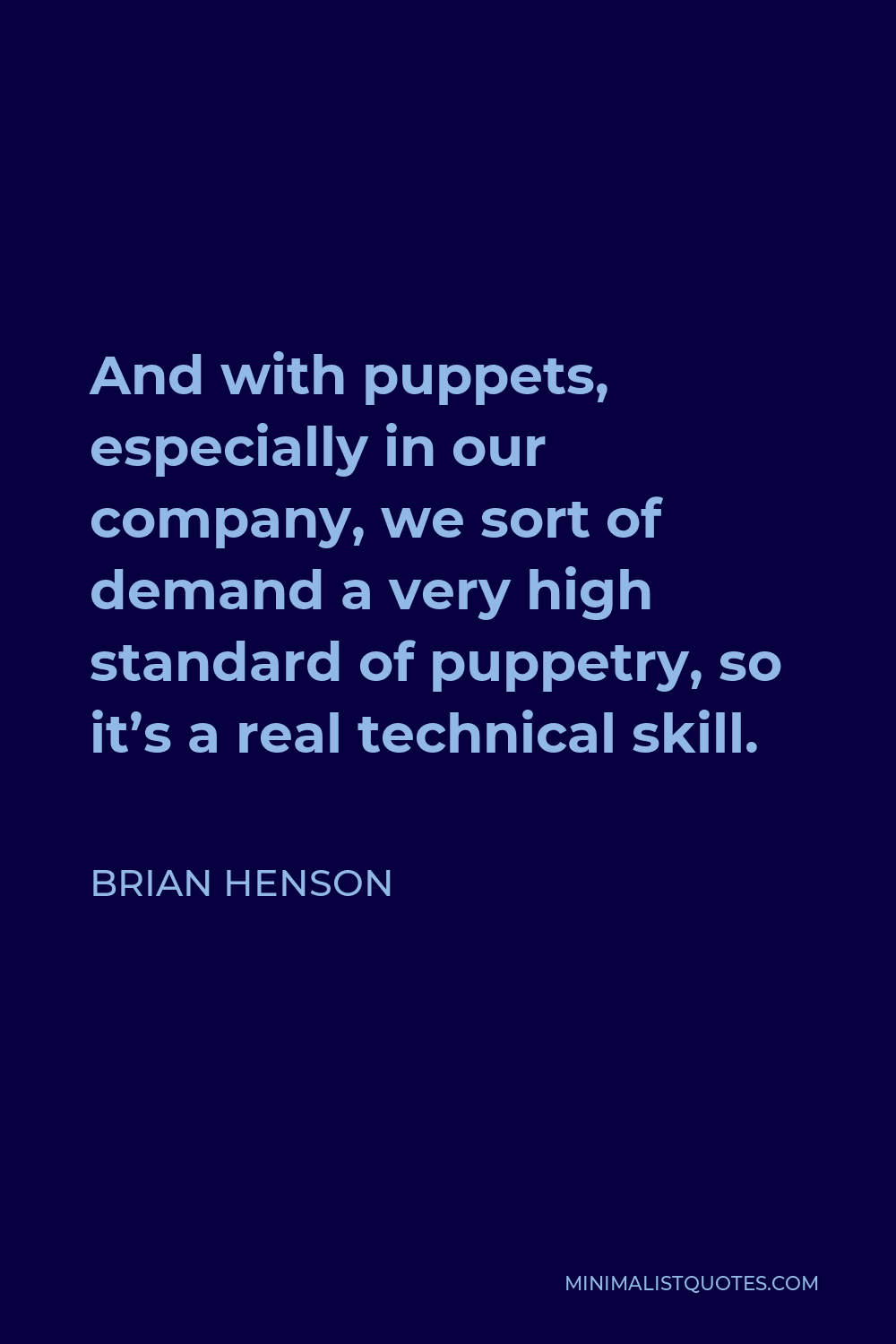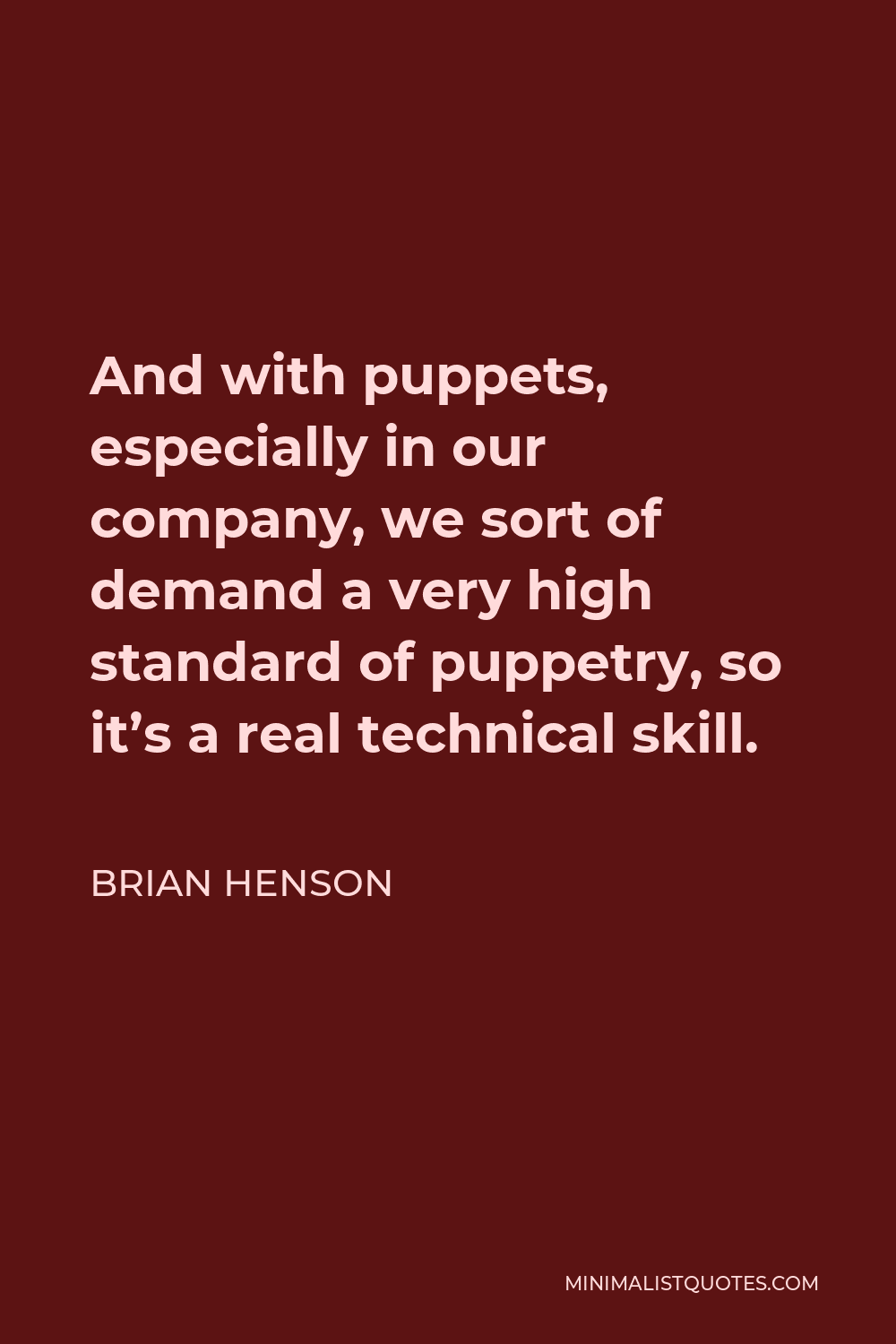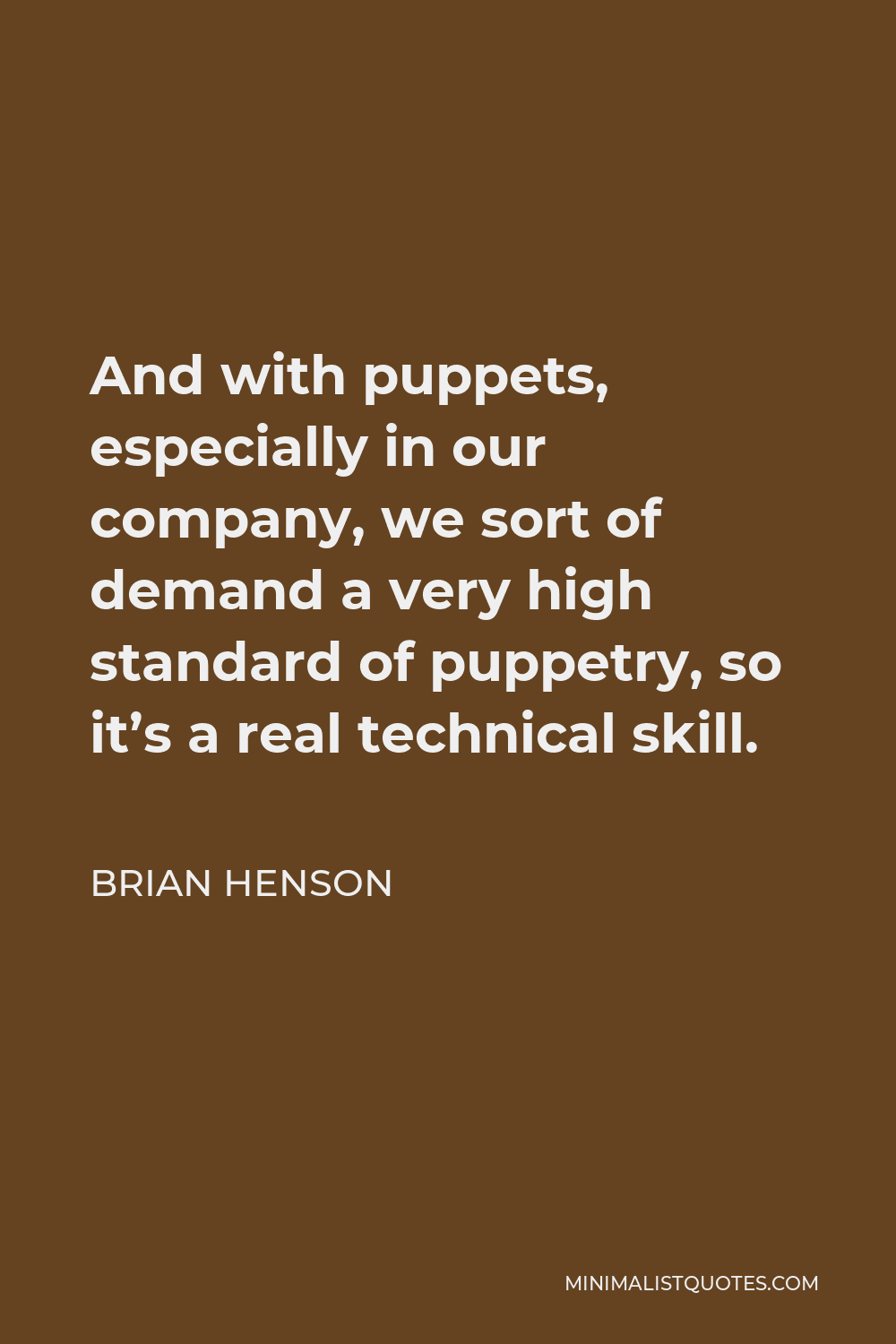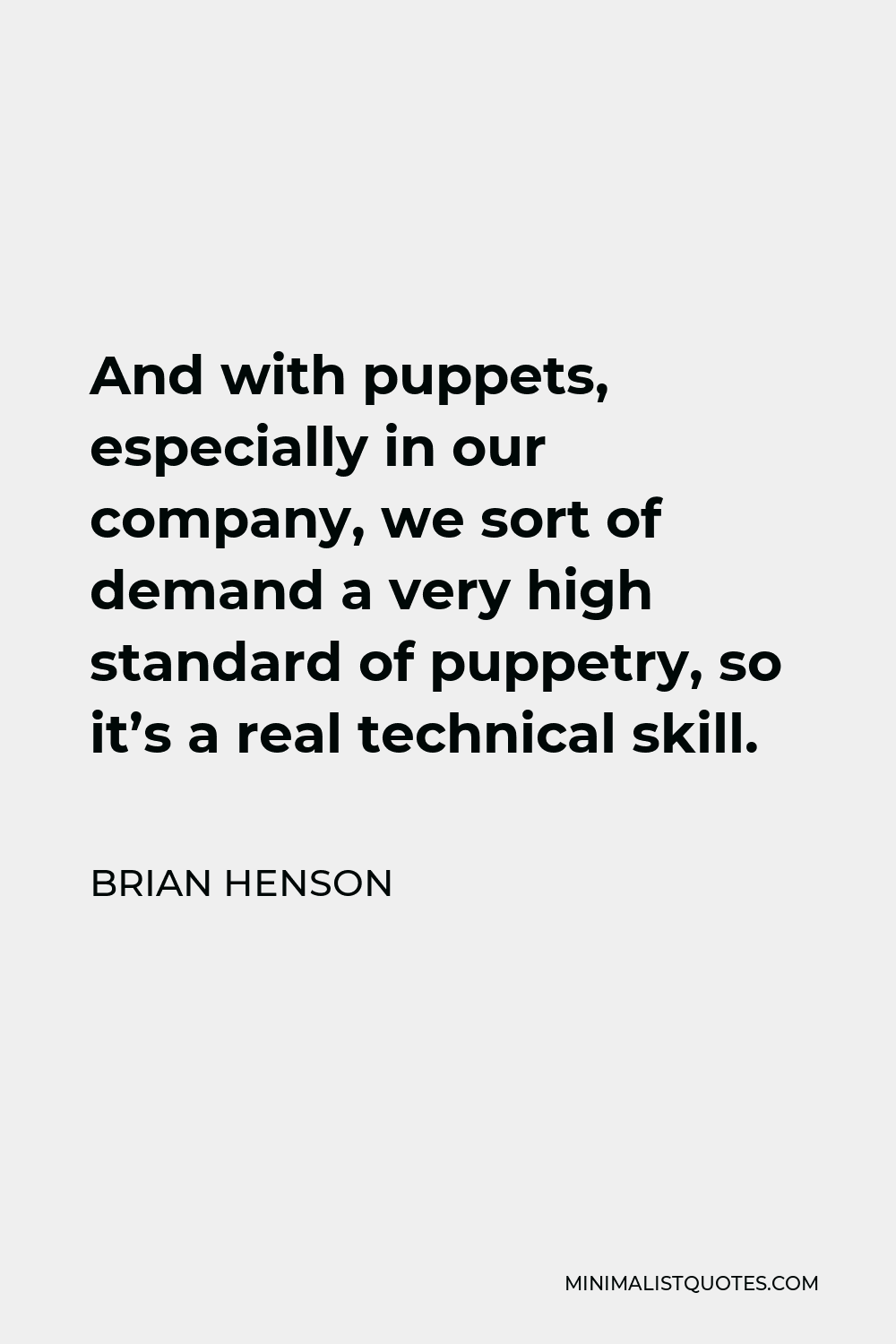And that was always my father’s favorite part about shooting as well. Often my dad would shoot very, very late, he was quite a workaholic, they would do 20, 20-hour shoots and stuff like that.
BRIAN HENSONAnd with puppets, especially in our company, we sort of demand a very high standard of puppetry, so it’s a real technical skill.
More Brian Henson Quotes
-





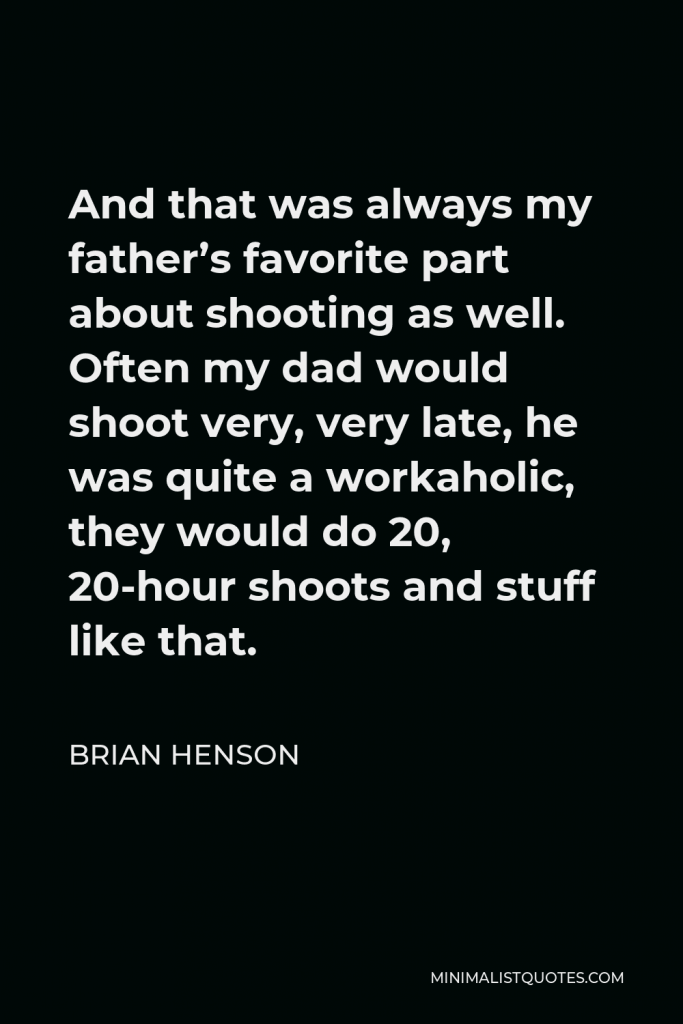

-





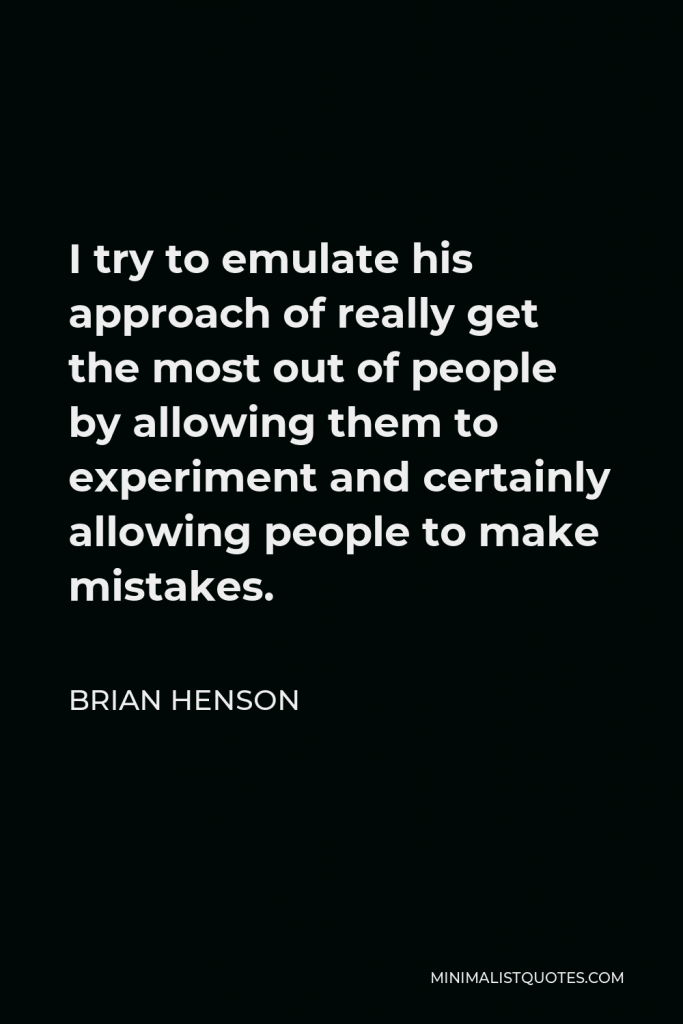

I try to emulate his approach of really get the most out of people by allowing them to experiment and certainly allowing people to make mistakes.
BRIAN HENSON -





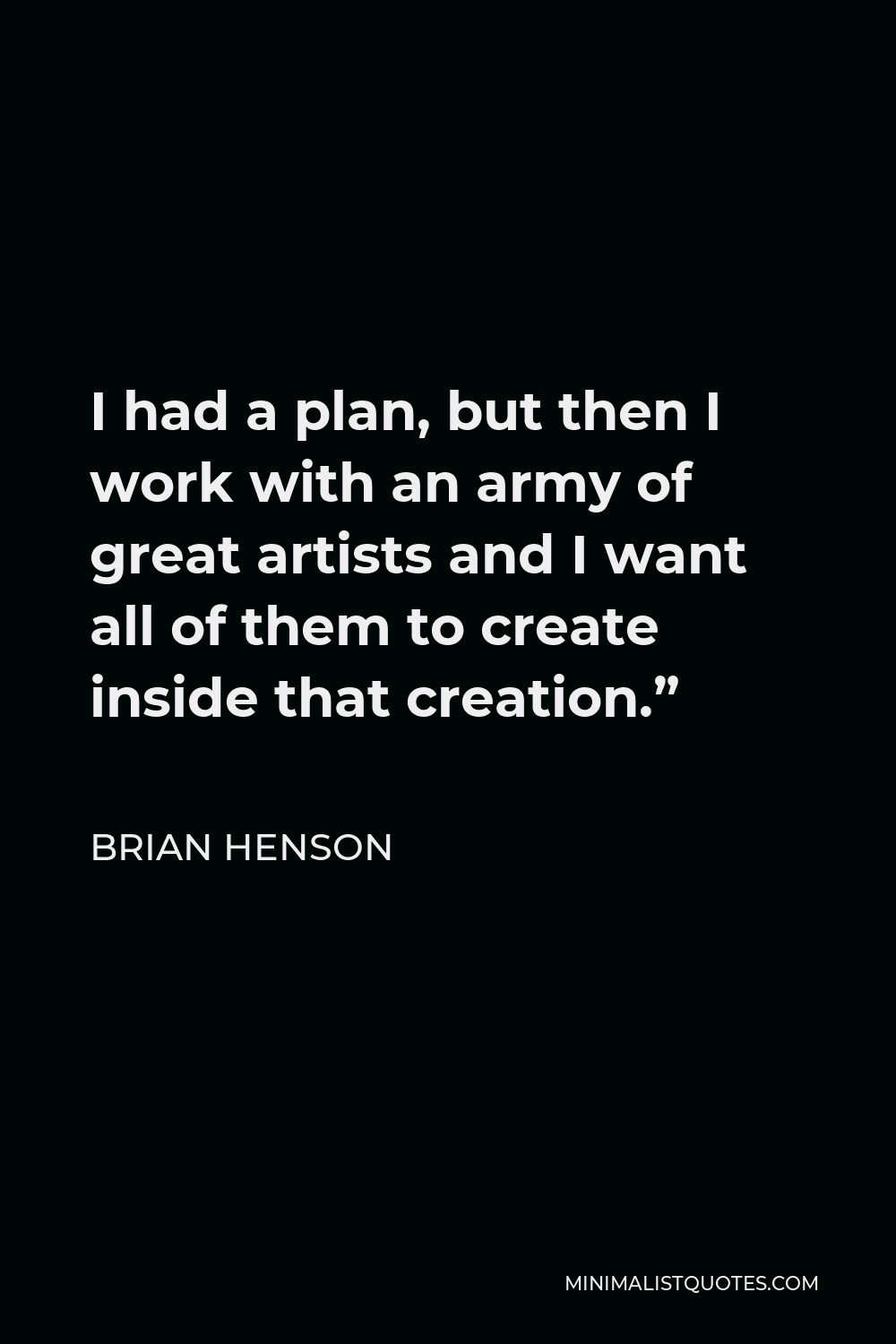
I had a plan, but then I work with an army of great artists and I want all of them to create inside that creation.”
BRIAN HENSON -





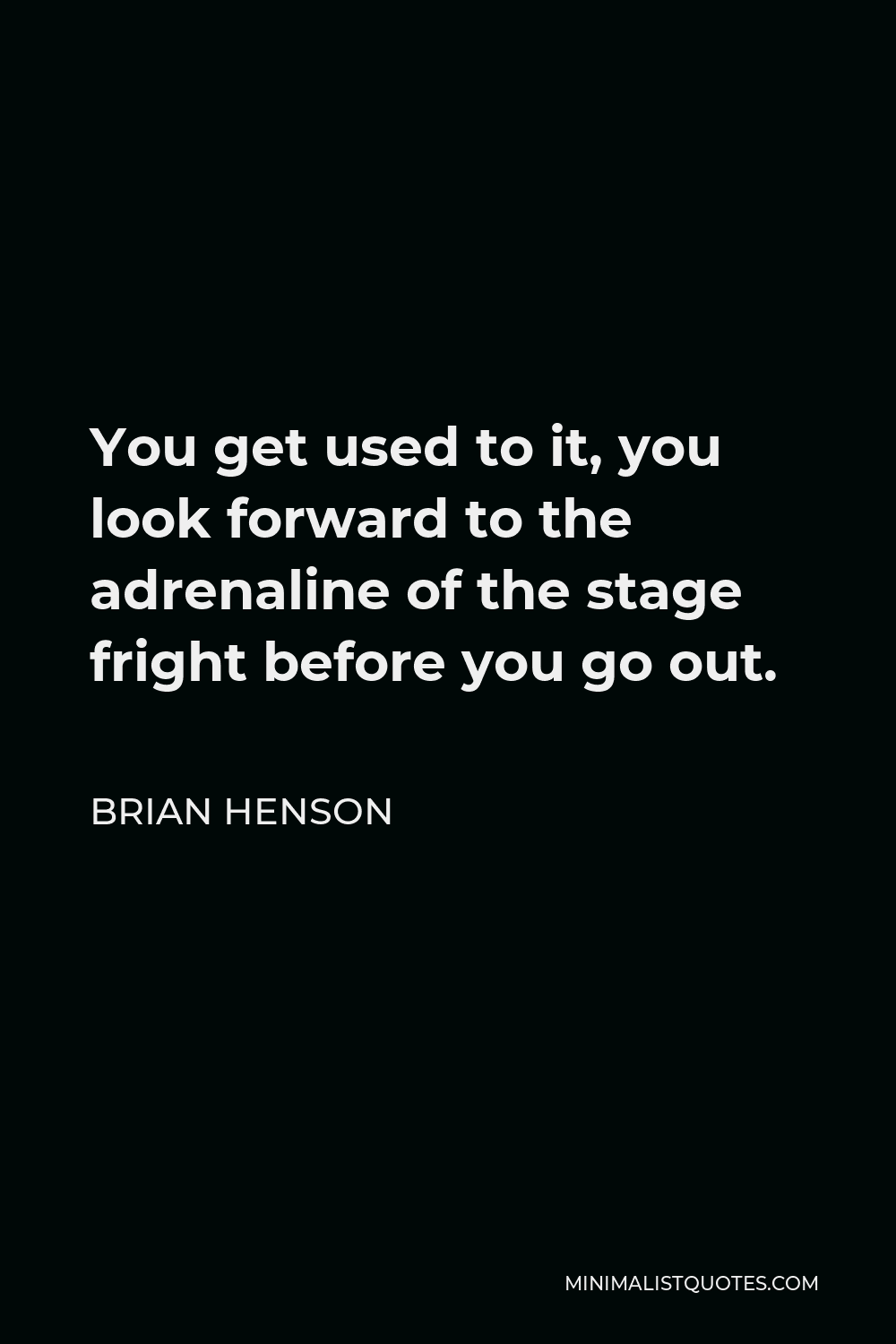
You get used to it, you look forward to the adrenaline of the stage fright before you go out.
BRIAN HENSON -





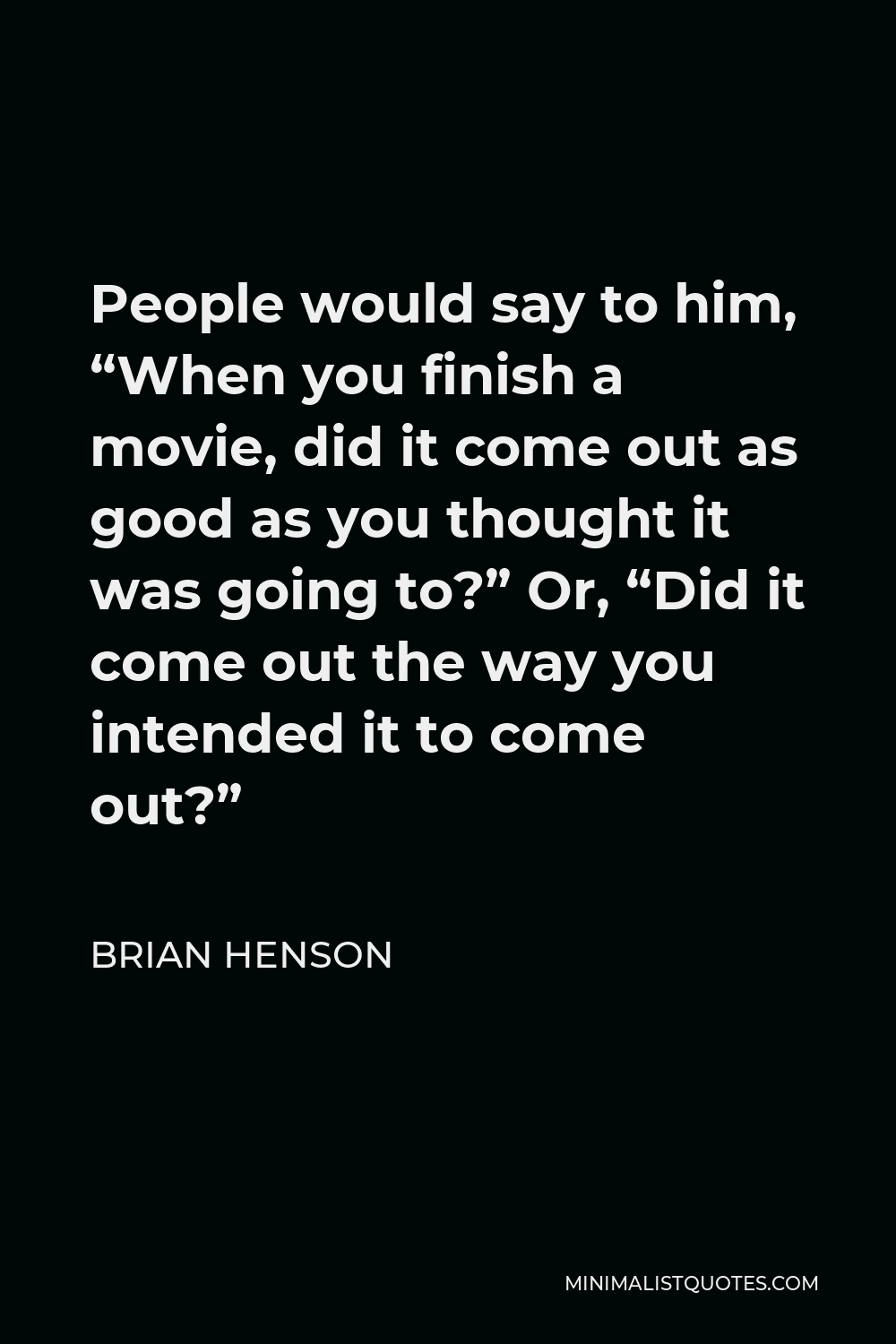
People would say to him, “When you finish a movie, did it come out as good as you thought it was going to?” Or, “Did it come out the way you intended it to come out?”
BRIAN HENSON -





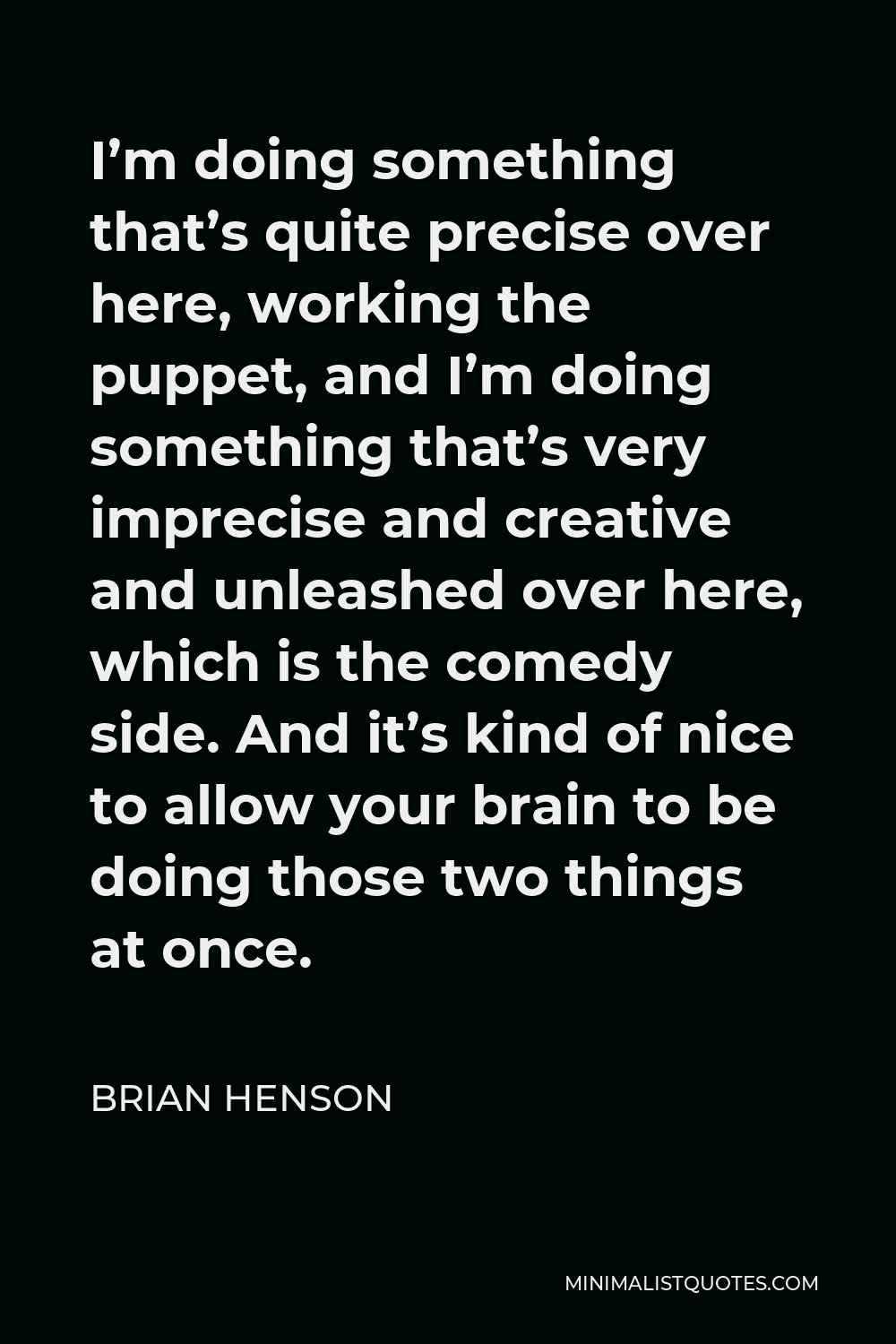
I’m doing something that’s quite precise over here, working the puppet, and I’m doing something that’s very imprecise and creative and unleashed over here, which is the comedy side. And it’s kind of nice to allow your brain to be doing those two things at once.
BRIAN HENSON -





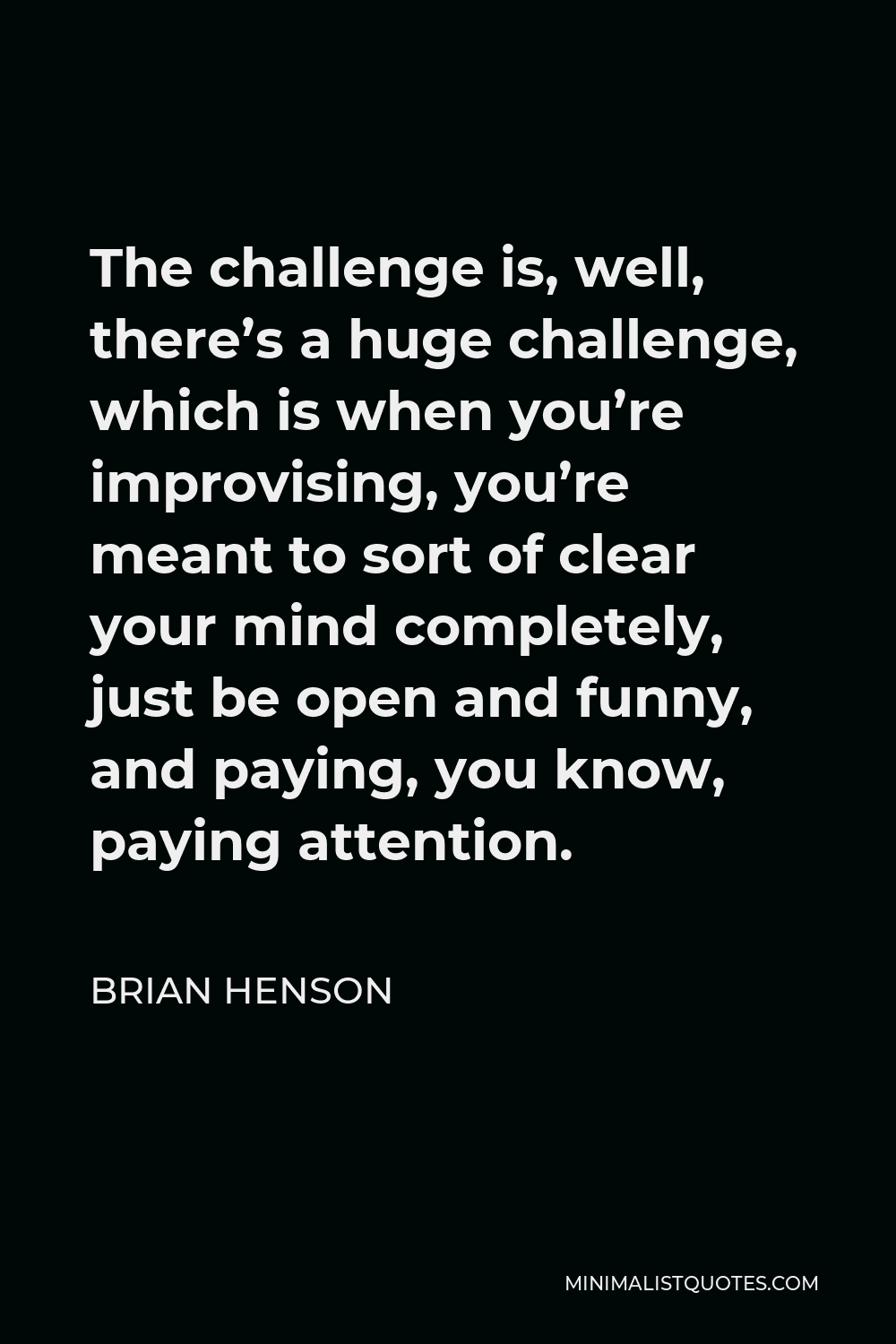
The challenge is, well, there’s a huge challenge, which is when you’re improvising, you’re meant to sort of clear your mind completely, just be open and funny, and paying, you know, paying attention.
BRIAN HENSON -





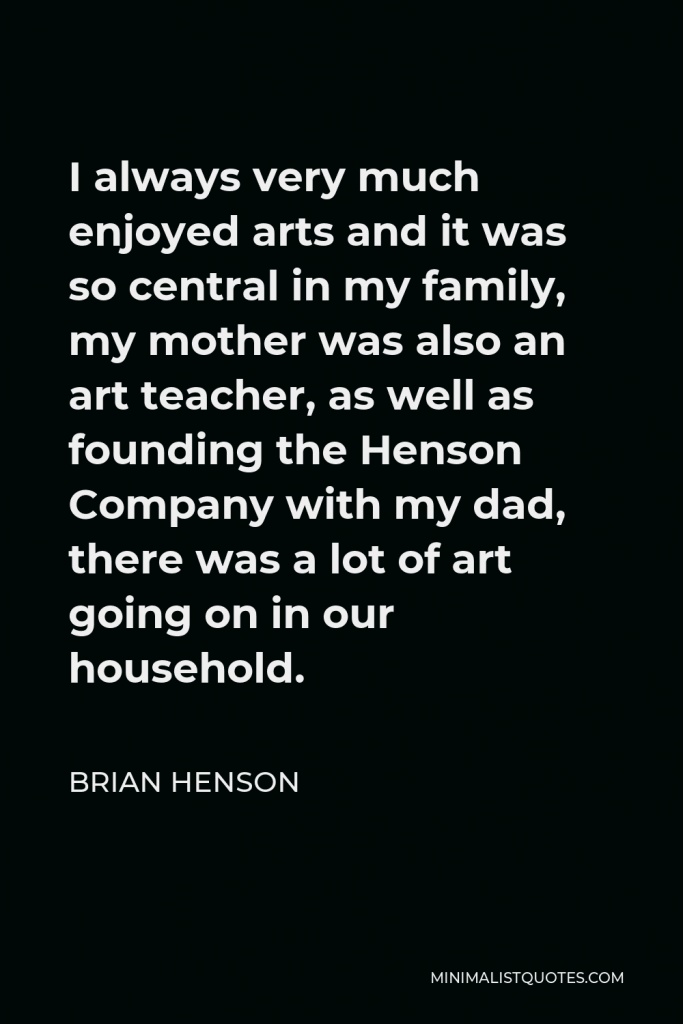

I always very much enjoyed arts and it was so central in my family, my mother was also an art teacher, as well as founding the Henson Company with my dad, there was a lot of art going on in our household.
BRIAN HENSON -





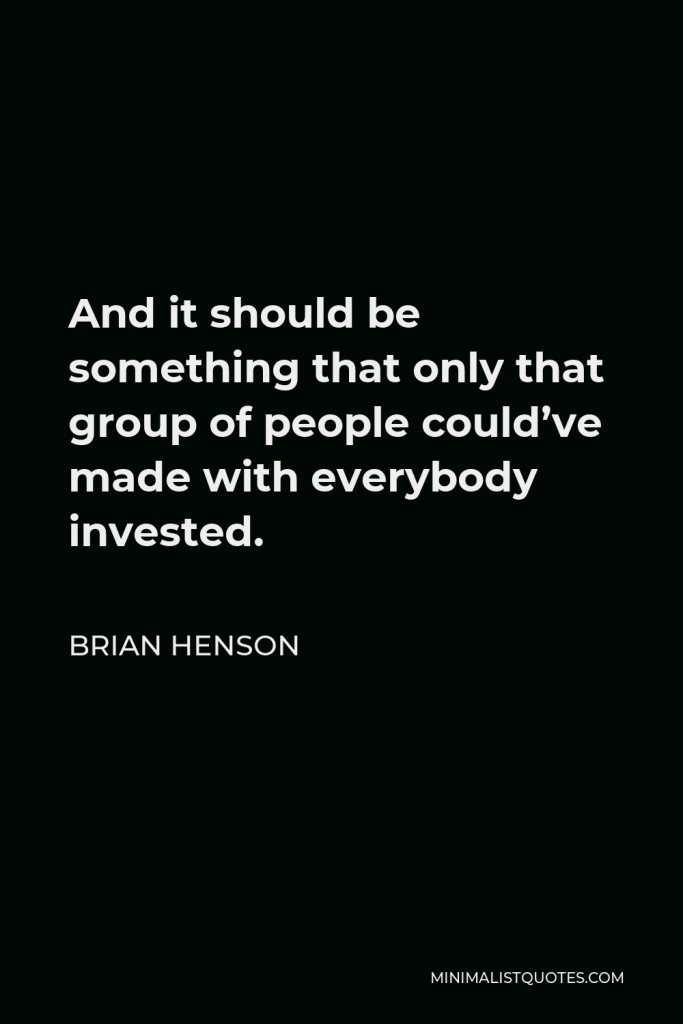

And it should be something that only that group of people could’ve made with everybody invested.
BRIAN HENSON -





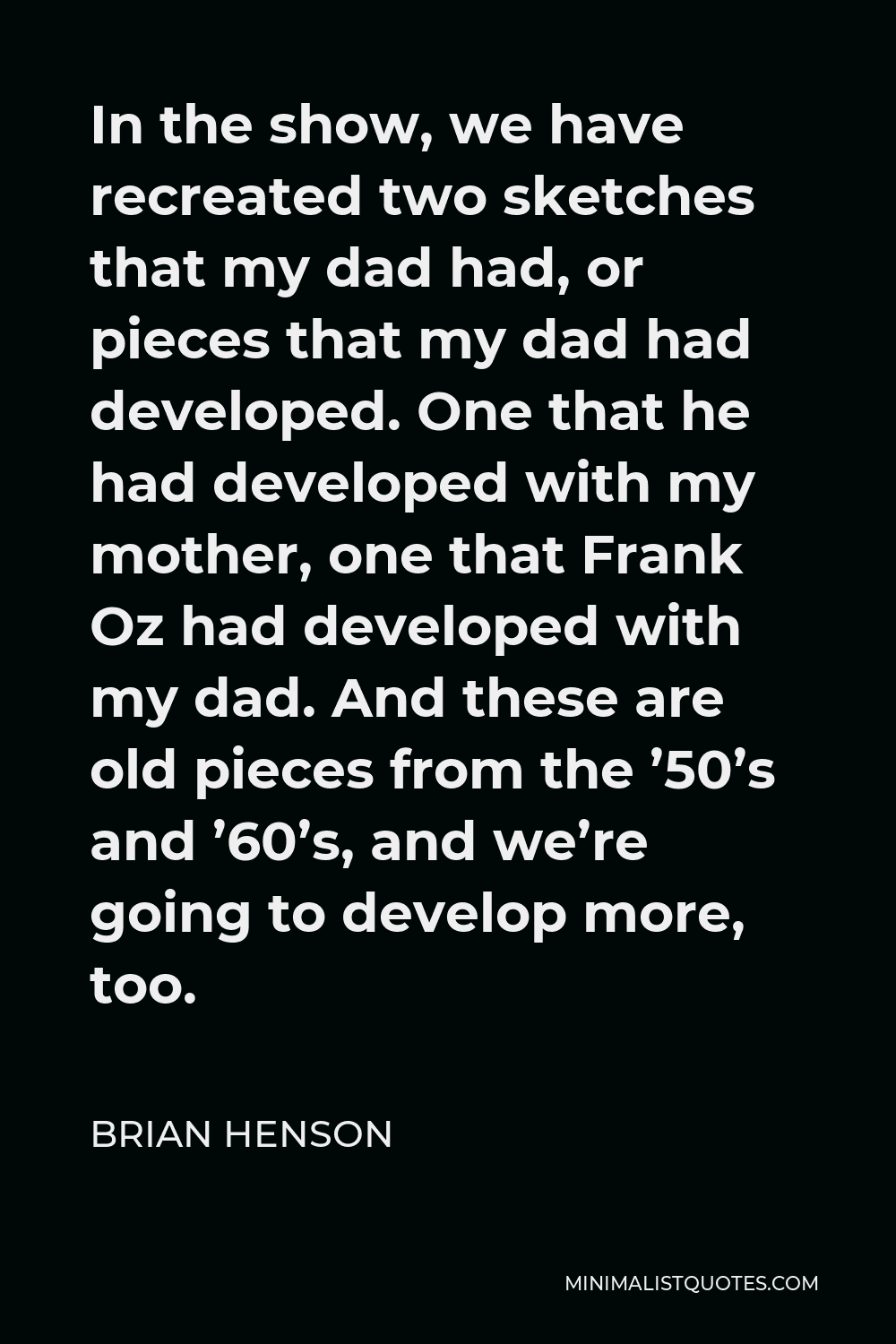
In the show, we have recreated two sketches that my dad had, or pieces that my dad had developed. One that he had developed with my mother, one that Frank Oz had developed with my dad. And these are old pieces from the ’50’s and ’60’s, and we’re going to develop more, too.
BRIAN HENSON -





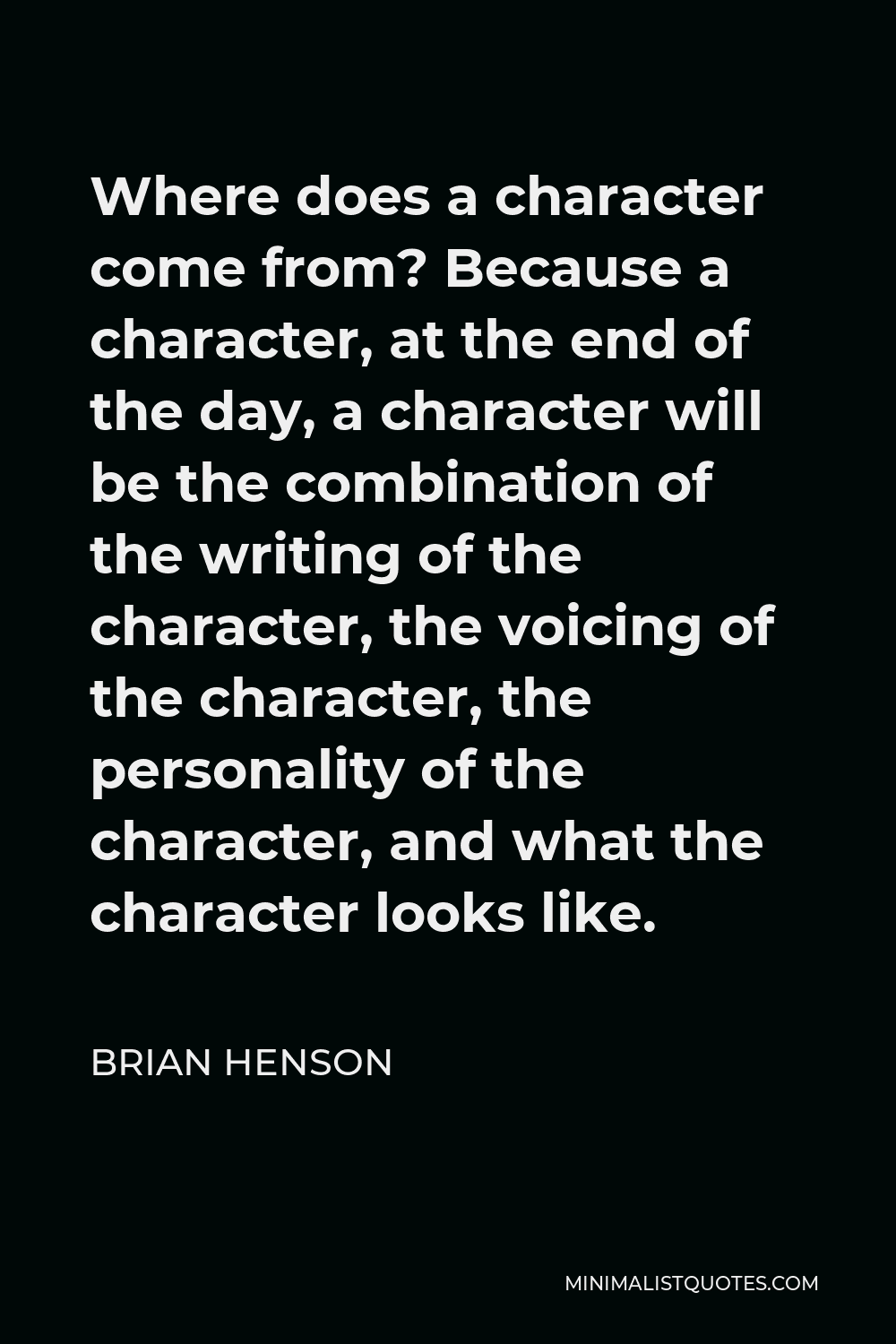
Where does a character come from? Because a character, at the end of the day, a character will be the combination of the writing of the character, the voicing of the character, the personality of the character, and what the character looks like.
BRIAN HENSON -





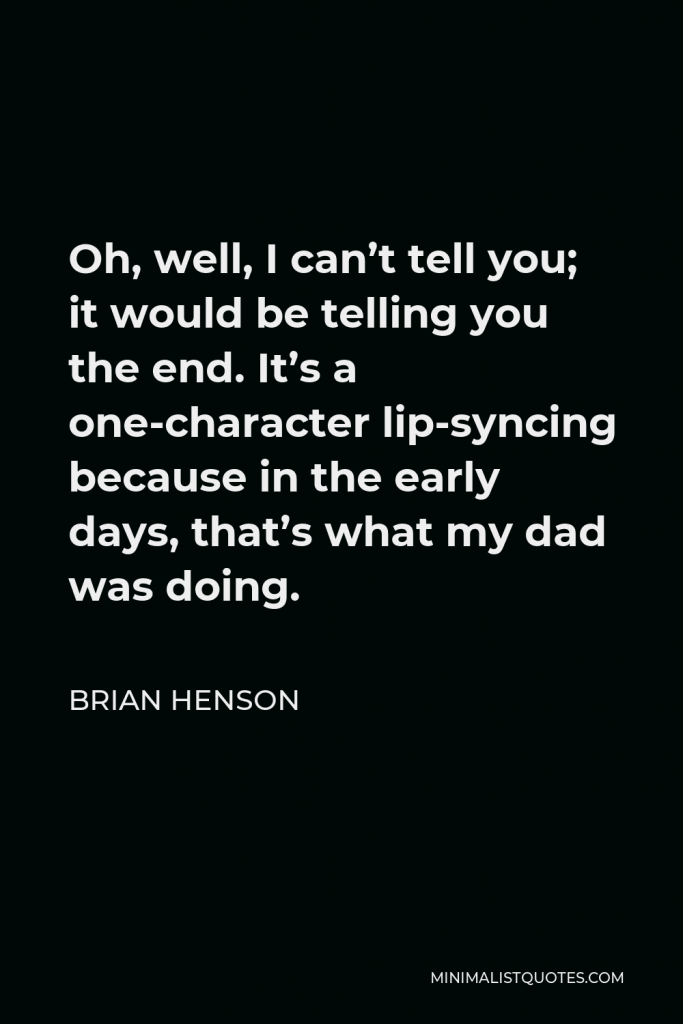

Oh, well, I can’t tell you; it would be telling you the end. It’s a one-character lip-syncing because in the early days, that’s what my dad was doing.
BRIAN HENSON -





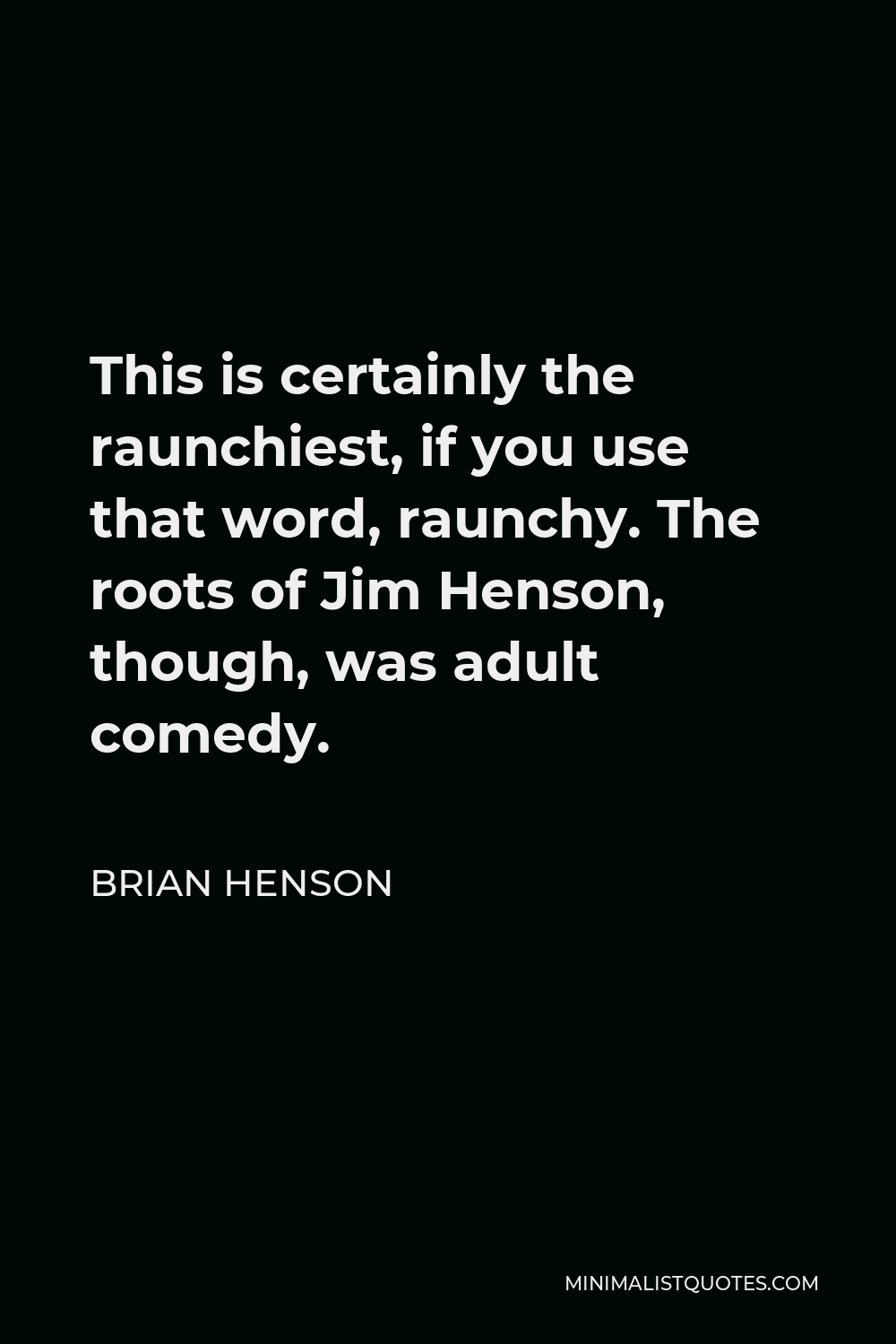
This is certainly the raunchiest, if you use that word, raunchy. The roots of Jim Henson, though, was adult comedy.
BRIAN HENSON -





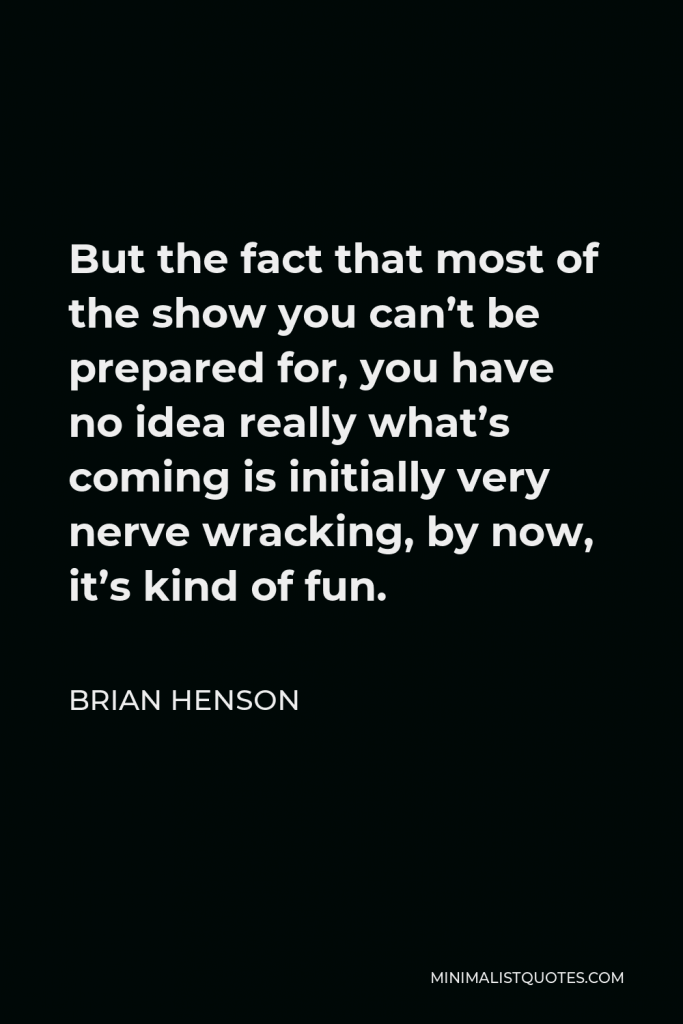

But the fact that most of the show you can’t be prepared for, you have no idea really what’s coming is initially very nerve wracking, by now, it’s kind of fun.
BRIAN HENSON -





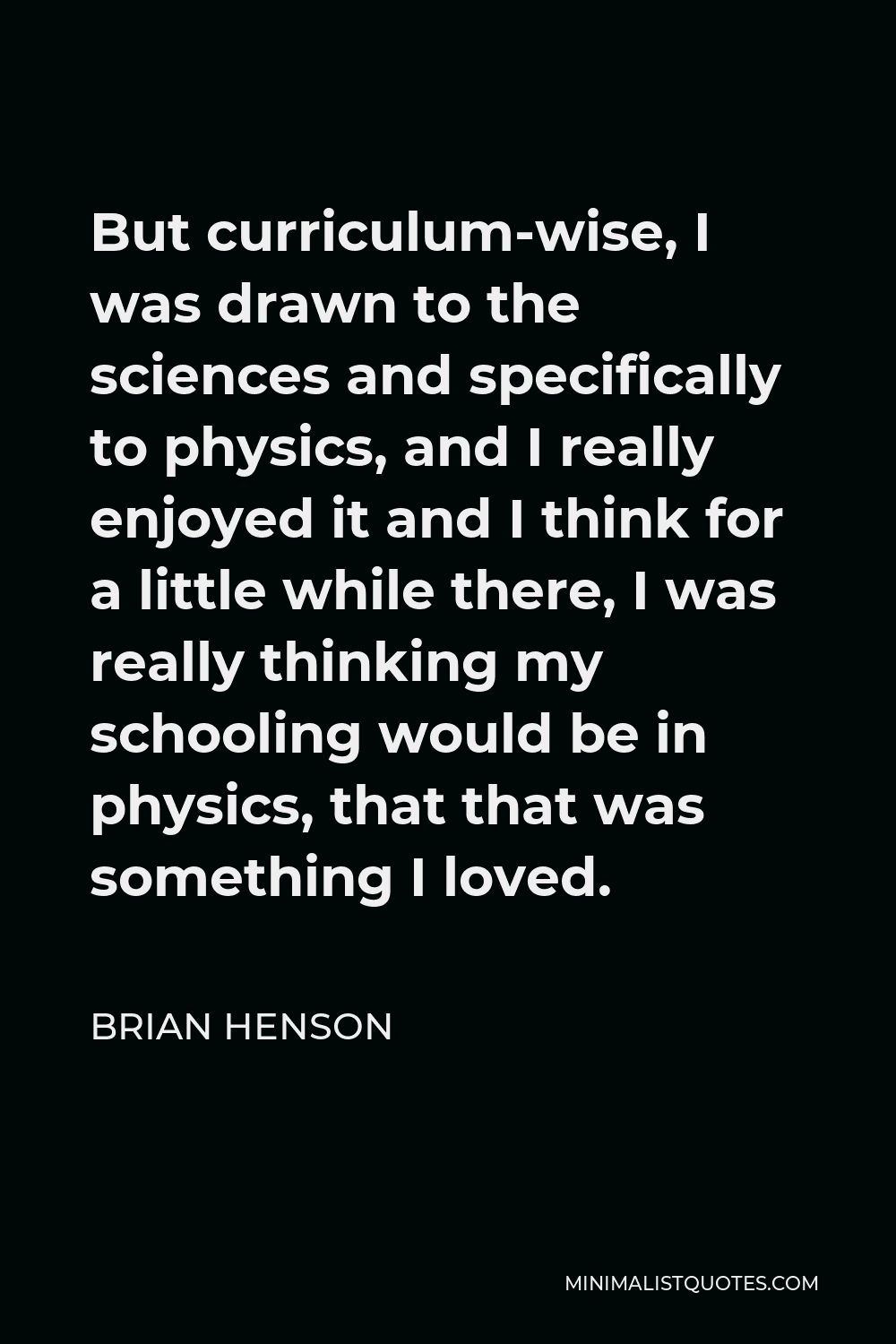
But curriculum-wise, I was drawn to the sciences and specifically to physics, and I really enjoyed it and I think for a little while there, I was really thinking my schooling would be in physics, that that was something I loved.
BRIAN HENSON -





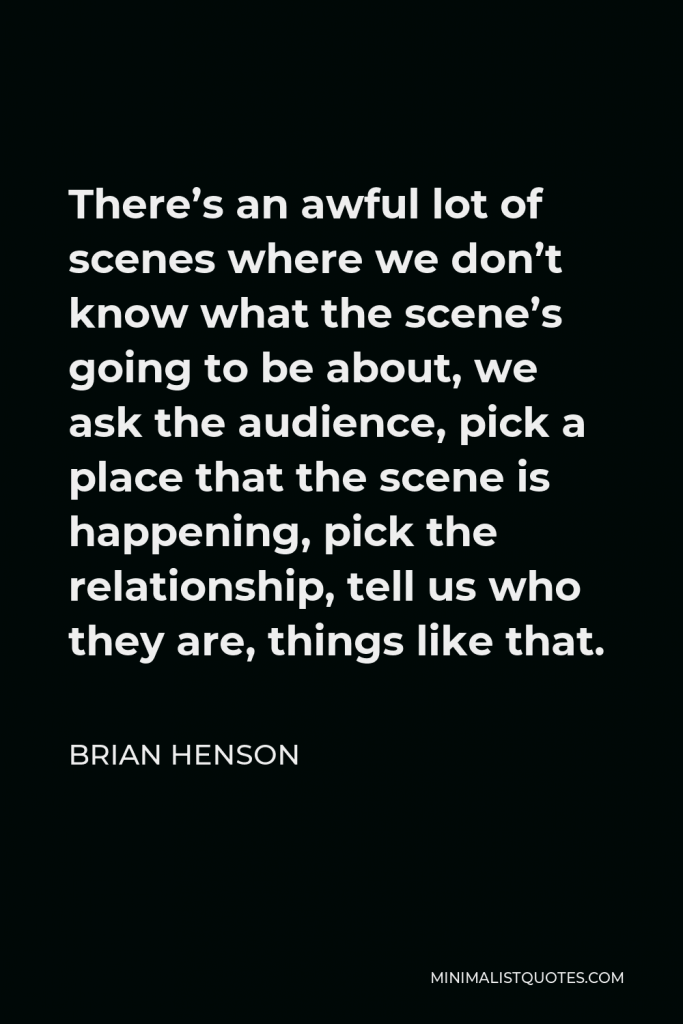

There’s an awful lot of scenes where we don’t know what the scene’s going to be about, we ask the audience, pick a place that the scene is happening, pick the relationship, tell us who they are, things like that.
BRIAN HENSON
